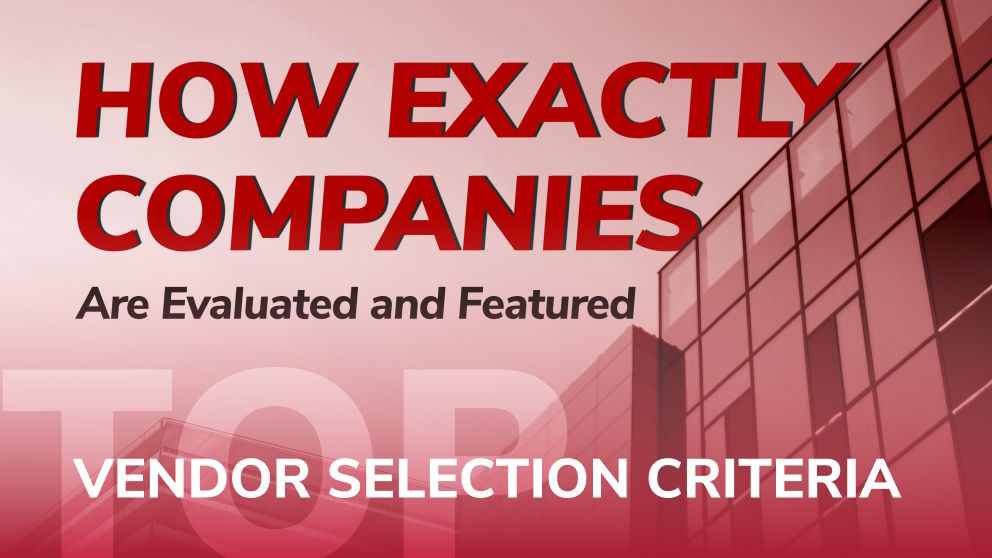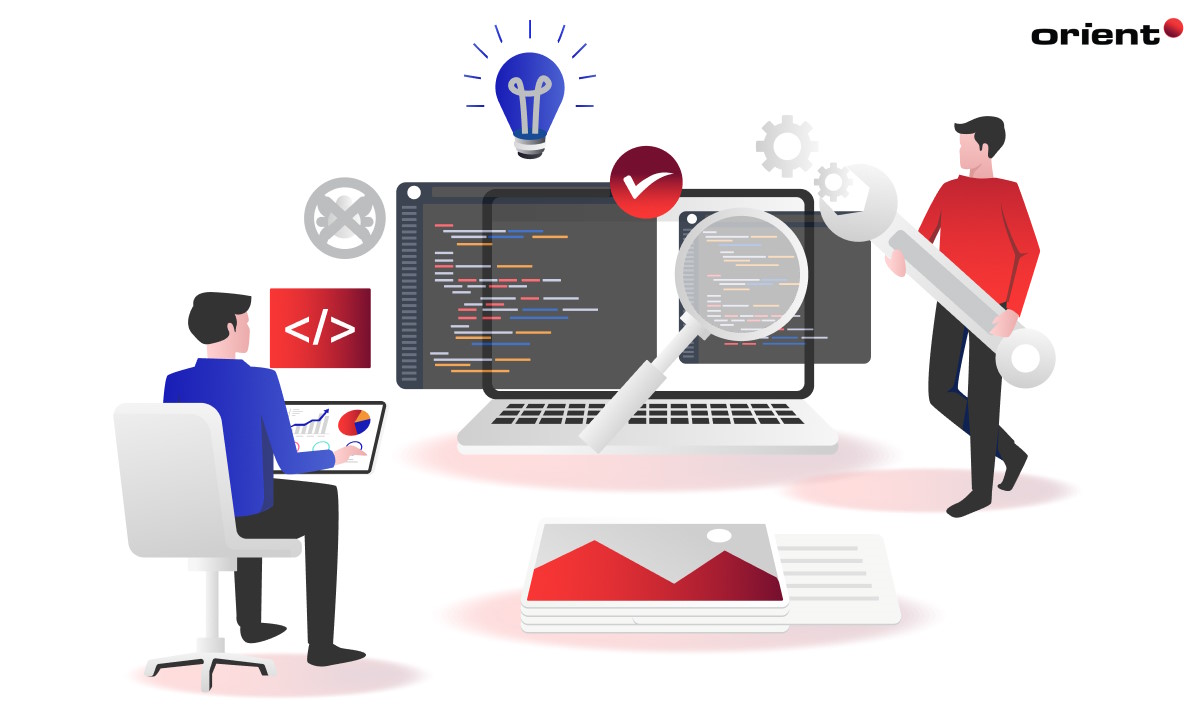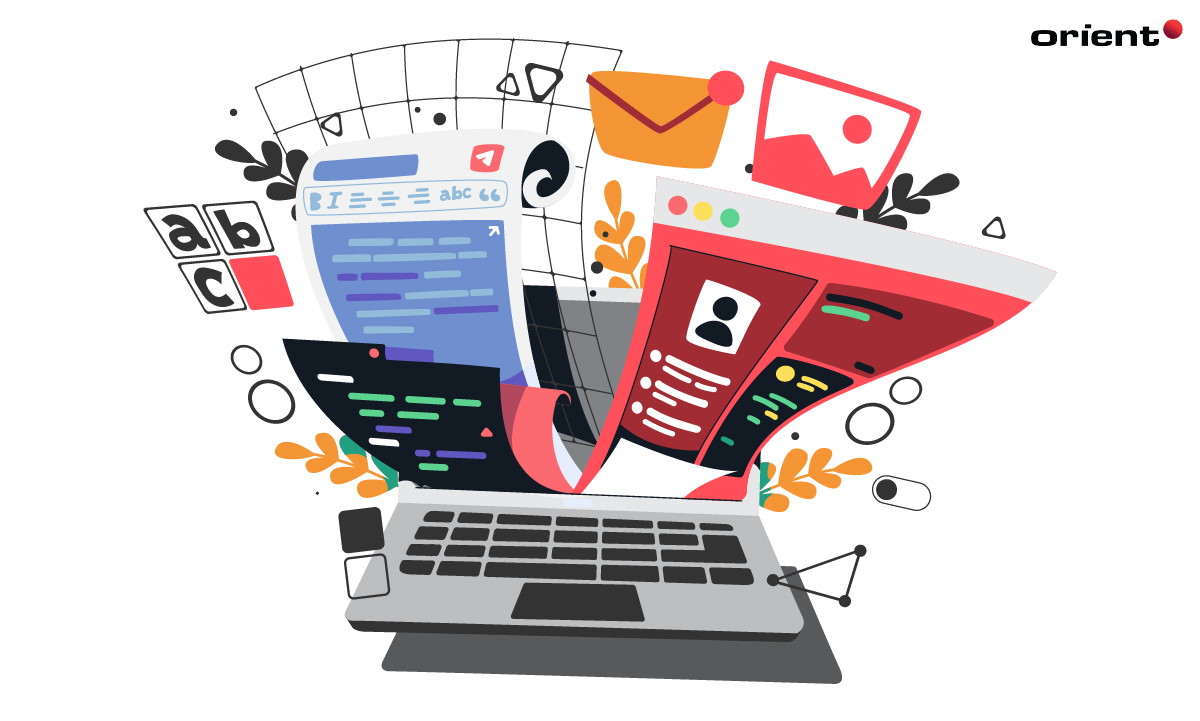An Overview of Custom Healthcare Software Solutions
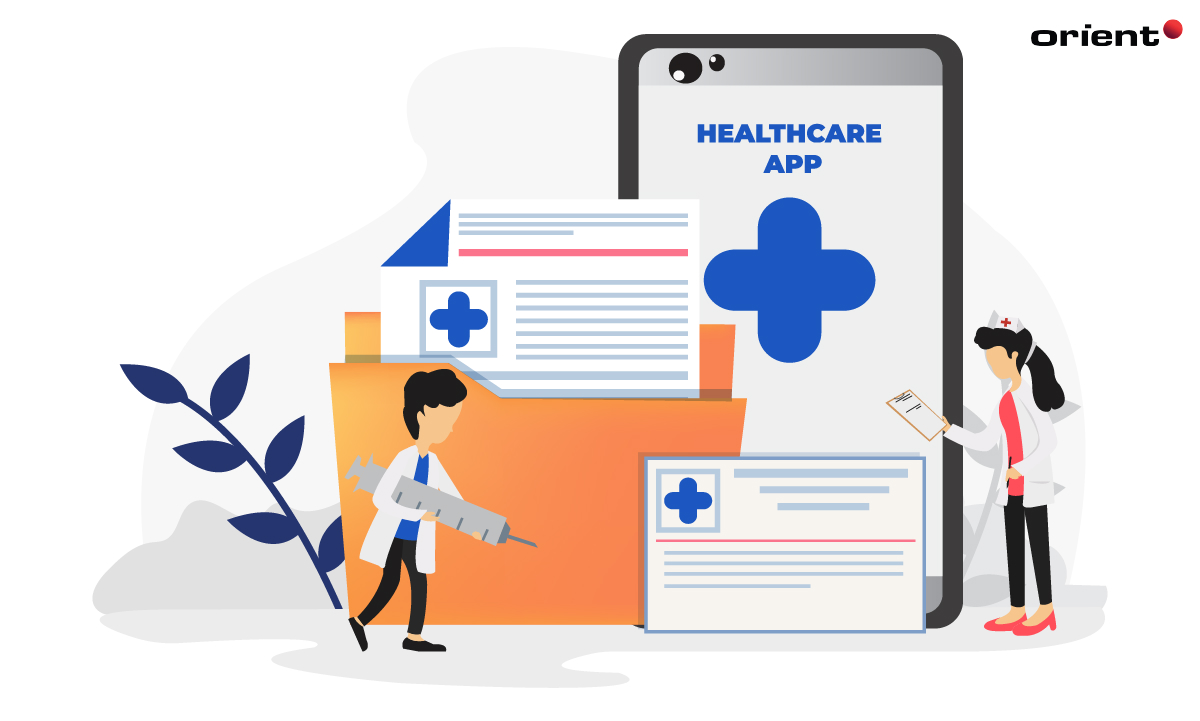
Content Map
More chaptersWe are proceeding further on the road of the Fourth Revolution Industry (4.0 Industry), in which all industries are intertwined with digital innovations and technologies in a good manner. The healthcare industry has not been off the bandwagon. And in the post-pandemic time, custom healthcare software solutions that were assumed futuristic a few years ago have now gone ubiquitous.
Look around us, and you’ll find a lot of examples of how hospitals, health facilities, and medical institutions have been integrating some forms of technologies into their operations, starting with simple daily work like electronic medical records, medical staff management, patient portals, and so on, moving toward more complicated healthcare processes, such as surgeries. As a result, it will be no strange to see more and more healthcare institutions take on custom medical software development on their own or through a healthcare software development agency, trying to modernize their facilities and maximize the advantages of digital transformation.
What Is Custom Healthcare Software?
At its essence, custom medical software is a custom-built application designed to perform tasks and streamline workflow within the healthcare system and operation. As the name suggests, these applications can be either made upon the peculiarities according to specific requirements of healthcare organizations – called custom-made or tailor-made solutions – or built up as conventional solutions for all – known as off-the-shelf software.
Benefits of Custom Software Solutions in the Healthcare Industry
A majority of healthcare providers would rather have the solutions at their disposal than use existing systems, so they build up or outsource a dedicated development team to medical software development services and have their own software developed, while many medical organizations turn to a healthcare software development company to buy bespoke software that is closest to their specifications. Either way brings a wide range of benefits to the healthcare ecosystem.
For Medical Workers & Facilities
- Optimize Operational Efficiency: Custom software solutions such as electronic health records (EHRs) and hospital information systems (HIS) are designed to help medical facilities and staff automate, streamline, and optimize their daily tasks. This can include monitoring patient prescription data, medical histories, billing processes, or staff attendance management.
- Secure Patient Data: Custom healthcare software helps in securing patient data so that it is out of the clutches of any malicious entity. It also helps medical organizations in providing secure access to both their medical staff and patients’ data, making sure that only authorized personnel have access to specific records.
- Ease the Burden upon Healthcare Professionals: Custom software solutions are designed to free up medical personnel from a great deal of day-to-day tasks and help them focus on more pressing or complex cases that require their attention. By automating routine processes – such as medical records, patient management, billing, and scheduling – they can save time while achieving greater accuracy and efficiency in their efforts.
For Patients
The implementation of custom software solutions benefits not only medical institutions and personnel but also patients by offering better services and experience.
- Save Time: As medical software kicks in, the whole patient journey can now take place online via healthcare apps. This simplifies procedures to the fullest, making everything more convenient than in traditional healthcare settings. Patients can save much time from waiting and going to the medical offices for check-ups unless necessary. Instead, they can access medical records, make appointments, consult with doctors, ask for prescriptions, and make payments online.
- Improved Patient Experience: Thanks to remote patient monitoring, healthcare organizations can now monitor and respond to their patients from a distance more quickly and accurately. This helps in providing better patient care, as the medical staff can act on any changes or emergencies faster and provide timely treatments. Meanwhile, patients can keep track of their medical data and schedule appointments right on their portable or wearable devices anytime and anywhere. Additionally, pharmaceutical companies also employ mobile healthcare apps which enable patients to hand in prescriptions and buy medicine without leaving the house.
Different Categories & Types of Custom Healthcare Solutions for Your Practice
Healthcare software solutions can be divided into various groups, and each one comprises a number of types that are developed with different sets of functions and are based on different needs.
Business-centric Solutions
Electronic Health Record Software: EHR software is a system that enables a healthcare company to collect and manage patient records. EHR systems not only help to simplify the process of gathering patient information and digitalizing documents but also allow organizations to store data with more accuracy.
- Hospital Management Software: A hospital management solution helps healthcare organizations in managing administrative activities, such as billing, payroll processing, patient information management, etc.
- Medical Imaging Software: This type of healthcare software product help doctors in the diagnosis and treatment of different diseases by providing them with images from MRI, CT scans, X-rays, PET scans, etc.
- Medical Diagnosis Software: Medical diagnosis software helps medical providers in the process of diagnosing diseases and conditions. It also provides doctors with detailed patient data, which can be used for the effective treatment of disease.
- Medical Billing Software: Medical billing solutions help healthcare companies to better manage their finances. It automates the process of invoicing and tracking payments, allowing healthcare organizations to streamline their financial operations.
- RCM Software: Revenue cycle management solutions are employed to streamline the entire cycle of monitoring the patient’s journey from registration to care episodes and payment. This way, healthcare providers can reduce the paperwork behind the scene, ensure timely payments, optimize billing processes, and eventually deliver hassle-free services to patients.
Patient-centric Solutions
- Telemedicine Software: Telemedicine is a way too prevalent medical solution nowadays. This software enables doctors and patients to communicate electronically in real time with proper security protocols. This facilitates seamless patient care via telehealth apps, no matter the distance. That’s why telemedicine software came in handy as the best support tool during the peak time of the Covid-19 pandemic.
- Patient Information Portal: Patient Portals are web-based software that allows healthcare organizations to securely share information with patients. These portals enable patients to access their medical records, schedule appointments with medical offices, and even communicate directly with health practitioners online.
- Personal Health Record Software: Personal health record (PHR) solutions enable patients to keep track of their personal health information and allow medical providers to access the data in order to provide better care.
- E-Prescribing Software: E-prescribing software streamlines the process of prescribing medications to patients. With this type of healthcare software, doctors can enter prescriptions into a system and transmit them digitally to pharmacies for faster processing.
Why Need Custom Healthcare Software Development Services?
Custom medical software development can be venturous with a high risk of failure and no guarantee of the outcome. In addition, starting a healthcare software project entails a considerable investment of not only money but also resources and time. Therefore, the decision of whether to conduct the project in-house or outsource it to a capable hand is always a tough one to discuss and consider.
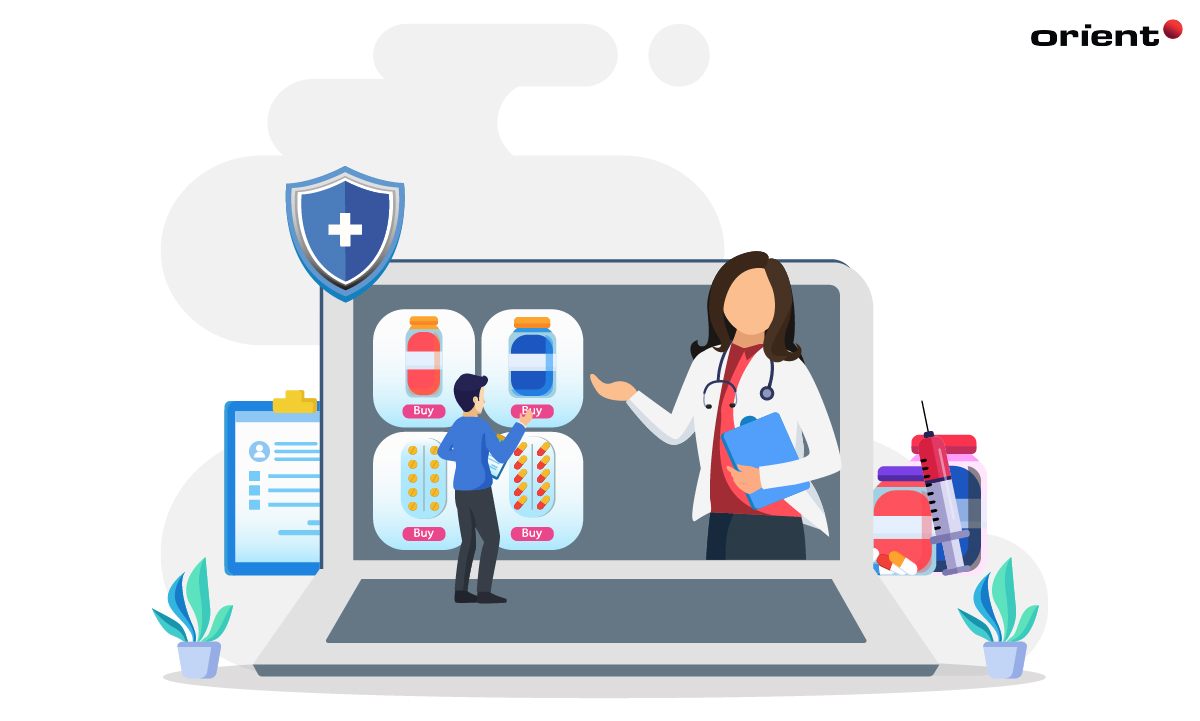
Compared to handling everything from A to Z internally, contracting out with a competent software development company will be more advantageous in terms of the following:
- Reinforce Domain Knowledge: Software development for healthcare is risky if you do not have the necessary skills and experience to do it. Fortunately, problem-solved when you hire a dedicated team of healthcare software developers who specialize in building medical solutions and can give you an assurance that your project is set up for success.
- Cost-effectiveness: Budget is the next to be concerned with since a software solution undoubtedly costs a lot to be completed and ready to launch. But outsourcing project management and development can not only cut down on development costs but also save money and resources on hiring a full-fledged internal team to handle the project.
- Resources: There may and will always be challenges in terms of manpower in the tech industry now and then, and the global-scale “drought of IT experts” is a typical example. It means that sourcing IT personnel, especially specialized ones such as medical software developers, will be a daunting task over time. The increasing competitiveness in the IT labor market will lead to a talent war, making it prohibitively expensive to build an in-house team of full positions. And contracting out dedicated teams or augmenting IT staff is currently the best way out until now as your project is staffed with the available pool of talent from the service provider, and they are ready to hit the ground running anytime.
- Quality: Partnering with an outsourcing company specializing in healthcare software product development will buy you some kinds of assurance for the software quality, as experienced and devoted professionals are in charge of the development and deployment process. They will also closely monitor the whole project from requirements to delivery and make sure that all features work together harmoniously. In addition, you can use their expertise to create a more robust application design with a better user experience for your patients or customers.
- Support & Maintenance: Last but not least, outsourcing firms can provide post-launch support and maintenance services. This helps eliminate the burden of having to manage the project all by yourself after deployment, as these services cover everything from bug fixes, new feature implementation, software updates, upgrades, etc.
However, the approach of outsourcing is not without flaws, so venturing into this path should be done with a well-prepared strategy in order to maximize the values and avoid pressing the common pitfalls. The keys to success at this point are to find the right partner and pick a suitable outsourcing model before getting your project off the ground.
If you are planning to outsource software development and in search of a top-tier IT company that is made of professionalism, experience, and quality, Orient Software is here to serve. Come to us, and you will be convinced by what we have been doing for worldwide clients across industries, including healthcare, for over a decade. Get in touch with Orient today!

